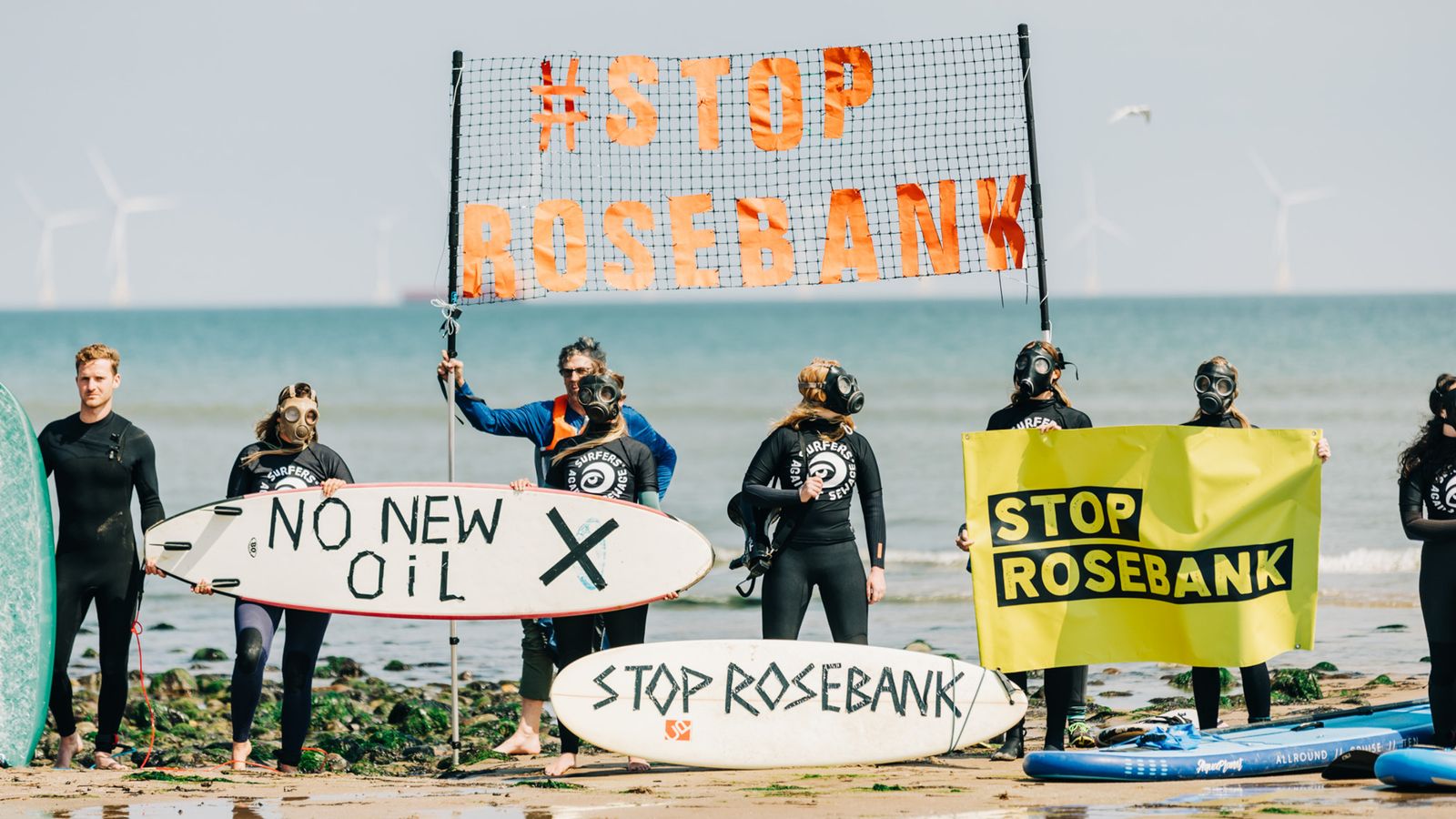The UK’s largest untapped oil and gas field has been given the green light by the government’s North Sea Transition Authority (NSTA), defying climate warnings about the damage from new fossil fuel projects.
Norwegian state oil giant Equinor expects to pump 325 million barrels of oil from Rosebank, 80 miles off the Shetland coast in the North Atlantic, from 2027.
It is the UK’s last major undeveloped oil site, three times the size of the controversial Cambo oil field, which was the subject of huge, high-profile protests in 2021 before being paused last year.
The contentious decision is one part of a broader row over whether the UK should continue to develop new oil and gas fields, with other developments like Cambo and Horse Hill in Surrey in the pipeline.
Tessa Khan, executive director of campaign group Uplift, said: “We are teetering on the edge of surpassing 1.5 degrees of warming – a limit agreed on by world leaders and essential to ensuring a habitable planet – yet our government is still allowing companies like Equinor to blow through our carbon budgets for the sake of profit.”
Rosebank’s “immense size, its location relative to marine protected areas, and the threat it poses to the climate have made it a lightning rod for criticism”, she said.
Equinor expects Rosebank to bring £8.1bn in direct investment to the UK economy.
An NSTA spokesperson said after announcing the decision on Wednesday: “We have today approved the Rosebank Field Development Plan which allows the owners to proceed with their project.
“The FDP is awarded in accordance with our published guidance and taking net zero considerations into account throughout the project’s lifecycle.”
Does the world need more oil?
The government recently doubled down on its commitment to hand out further oil and gas licenses in the North Sea, insisting they are compatible with climate targets and could provide greener, local sources of fuel.
A Labour government would stop issuing new licences – a radical move that has drawn fury from unions.
The leading global climate science authority the IPCC, the United Nations chief Antonio Guterres and even the world’s foremost energy agency, the IEA, say that no new oil and gas projects can go ahead if the world is to limit warming to internationally agreed safer limits.
Under the 2015 Paris Agreement, all countries agreed to limit global heating to ideally 1.5C above pre-industrial levels to avoid severe damage to human health and nature.
The world is already around 1.2C hotter, and on course for 2.5C of warming.
But the IEA also forecasts global demand for oil to keep growing until at least 2028.
The UK’s climate advisers, the CCC, expect the country to need some oil until at least 2050. However, around 80% of oil produced in the UK is exported.
Please use Chrome browser for a more accessible video player
Campaigners estimate that burning through that amount of oil would generate more CO2 emissions than 28 low-income countries produce in a year.
Emissions just from getting the oil out of the ground at Rosebank, before it has even been burned, would be enough to blow the rest of the emissions the UK has budgeted for from oil and gas production, according to analysis by Uplift.
The NSTA says it makes a holistic assessment of the impact of any project and the government argues that local production is greener.
The CCC says the impact on global emissions of new UK oil and gas extraction is “not clear-cut”.
Be the first to get Breaking News
Install the Sky News app for free
Equinor says the oil will be much greener than the average for the North Sea, at 12kg CO2 a barrel vs approximately 20kg CO2 a barrel, which could fall to 3kg if it successfully electrifies operations later on.
Its spokesperson Ola Morten Aanestad said: “Equinor has a net zero plan that is in line with the Paris Agreement. There’s no scenario that anybody has produced that says in 2050 there would be absolutely no need for oil and gas.”
Uplift says more investment in renewable power and a “definitive end to oil and gas” would better solve the energy and climate crises.
Watch The Climate Show with Tom Heap on Saturday and Sunday at 3pm and 7.30pm on Sky News, on the Sky News website and app, and on YouTube and Twitter.
The show investigates how global warming is changing our landscape and highlights solutions to the crisis.





